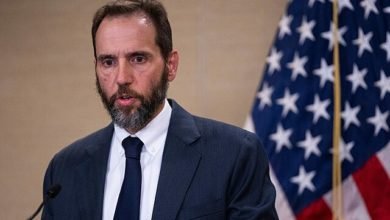Supreme Court Weighs Overturning Decades-Long Precedent That Curtailed Religious Freedom In Workplace

The Supreme Court weighed whether the U.S. Postal Service (USPS) must accommodate a Christian mail carrier’s religious request for Sundays off work during Tuesday’s oral arguments in Groff v. DeJoy.
In 2019, Gerald Groff sued USPS after it failed to exempt him from working on Sundays, a religious accommodation he argued is mandated under Title VII of the Civil Rights Act of 1964 and the Equal Employment Opportunity Act of 1972.
His case gives the Supreme Court the opportunity to address what many deem bad precedent in its 1977 Trans World Airlines, Inc. v. Hardison ruling, which limited protections under Title VII, asserting that religious accommodations need not apply when it will saddle the employer with more than a trivial, or “de minimis,” burden.
Groff’s attorney, Aaron Streett, told the Court that the triviality standard set out in Hardison makes a “mockery of the English language,” arguing that it is a far cry from the clear text of the statute, which says religious accommodations must be offered unless it imposes “undue hardship.”
Other workplace accommodations, such as those guaranteed under the Americans with Disabilities Act, enjoy strong protections from violations by employers, but Streett said those same standards don’t apply to religious employees seeking accommodations.
Solicitor General Elizabeth Prelogar, arguing on behalf of Postmaster General Louis DeJoy, cautioned against overturning Hardison. Doing so could upset decades of good case law in the lower courts, she said.
Justice Neil Gorsuch was intent on finding common ground between the parties; both sides agreed an employer’s obligation to offer a religious accommodation is dependent on the circumstances, and both agreed employers must meet a higher standard than the one set out in Hardison when denying a request.
While the parties overlapped in some areas, they had different ideas on what standard should be used to replace the previous standard. Justice Sonia Sotamayor noted that there is no clear rule the Court can give because accommodations are “contextual” based on what a company is able to offer.
A small grocery store with three employees, for instance, might have more trouble providing an accommodation than a major corporation like Amazon.
Other concerns dealt with the second question posed by the case: whether damages to employee morale resulting from the accommodation could be enough to prove an employer suffered an “undue burden.”
The issue was a significant part of the Third Circuit Court of Appeals’ reasoning for ruling against Groff. His absence, they found, “diminished employee morale.”
Justice Elena Kagan, along with Sotamayor, expressed resistance to overruling Hardison, stressing the importance of following stare decisis when Congress has not disputed the statute’s interpretation.
Justice Ketanji Brown Jackson also appeared hesitant. “Isn’t this a policy question for Congress?” she asked.
“Courts have interpreted Title VII so restrictively that employers need not grant even the most simple of accommodations to religious observers to enable them to follow their faith,” Streett said in a statement after oral arguments. “The Justices have the opportunity in this case to restore religious liberty to the workplace. An America that values religious pluralism should respect the religious liberty rights of every employee.”
Groff also reacted to the morning’s arguments.
“Only God knows the final outcome of my case; I still trust Him even if my decision to honor the Lord’s Day costs me my career,” Groff said. “I hope this case results in a decision that allows others to be able to maintain their convictions without living in fear of losing their jobs because of what they believe.”
Content created by The Daily Caller News Foundation is available without charge to any eligible news publisher that can provide a large audience. For licensing opportunities of our original content, please contact licensing@dailycallernewsfoundation.org




Jesus said to the Pharisees, when they accused him or working on the Sabath, asked them would you not rescue your donkey on the Sabbath if it fell into a ravine?
God made the Sabbath for man, Not man for the Sabath. Jesus healed on the sabbath, and would not stop his work simply because it was the Sabbath day.